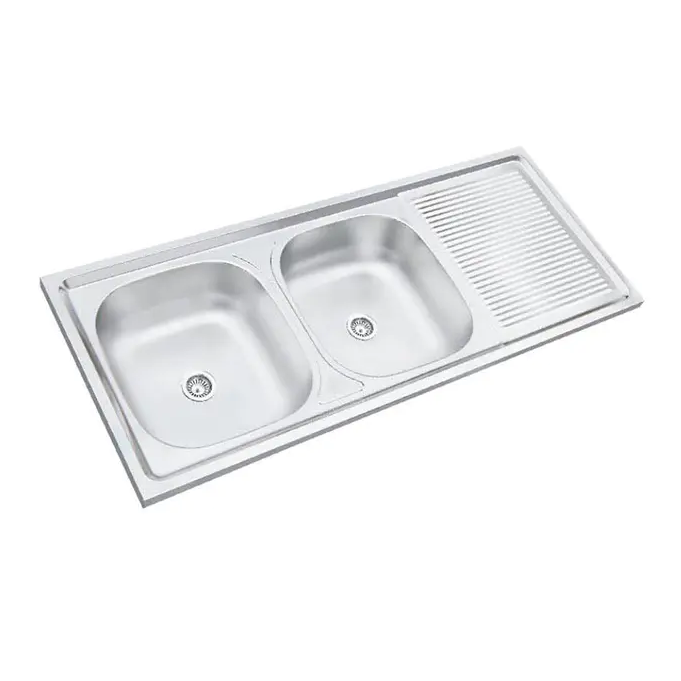From a manufacturer’s perspective, producing machine-made sinks involves a combination of precision engineering, material selection, and quality control processes. Machine-made sinks are created using automated techniques that ensure consistent dimensions and finishes, which is essential for meeting both industry standards and customer expectations.
One of the key aspects in manufacturing these sinks is the choice of materials. Common materials include stainless steel, ceramic, composite, and engineered stone. Each material presents its own manufacturing challenges. For instance, stainless steel sinks require processes such as stamping, deep drawing, and polishing to achieve the desired shape and surface smoothness. Ceramic sinks often involve molding and firing at high temperatures to ensure durability and a smooth finish. Composite sinks, made from blends of resin and natural minerals, require precise mixing and molding procedures to maintain uniformity and strength.
The use of automated machinery in manufacturing brings several benefits. Automation allows for consistent shaping and sizing, reducing variability that can occur with manual production. This consistency is important for ensuring that sinks fit standard countertop cutouts and plumbing configurations. It also helps reduce material waste by optimizing cutting and forming processes.
Quality control is integrated throughout the manufacturing workflow. Each sink undergoes inspections for surface finish, dimensions, and structural integrity. Testing may include water tightness, resistance to stains and scratches, and sound dampening properties, especially for stainless steel models. Detecting defects early in the process helps maintain overall product reliability and reduces the need for returns or repairs.
Manufacturers must also consider production efficiency and cost management. Streamlining manufacturing steps and using durable tooling helps keep production times reasonable and controls costs. At the same time, flexible manufacturing systems allow for different sink designs and sizes to be produced without extensive retooling. This flexibility enables manufacturers to respond to market trends and customer preferences more quickly.
Sustainability has become an important consideration in sink production. Some manufacturers focus on minimizing waste through improved cutting techniques or recycling scrap materials. Energy consumption during processes such as firing ceramics or polishing metal is also monitored and optimized when possible. Additionally, sourcing materials responsibly can contribute to a more environmentally conscious manufacturing approach.
Innovation in manufacturing techniques continues to evolve. Advances in computer numerical control (CNC) machining, laser cutting, and robotic assembly offer new opportunities for precision and efficiency. These technologies enable the production of complex shapes and integrated features, such as built-in drainage channels or sound-absorbing layers, that enhance the functionality of machine-made sinks.
In conclusion, from a manufacturer’s viewpoint, producing machine-made sinks requires attention to material properties, automated precision, quality control, cost efficiency, and sustainability. These factors collectively influence the final product’s consistency, durability, and suitability for various applications. As manufacturing technology advances, machine-made sinks will continue to adapt to changing design trends and consumer needs, maintaining their role in both residential and commercial interior environments.
